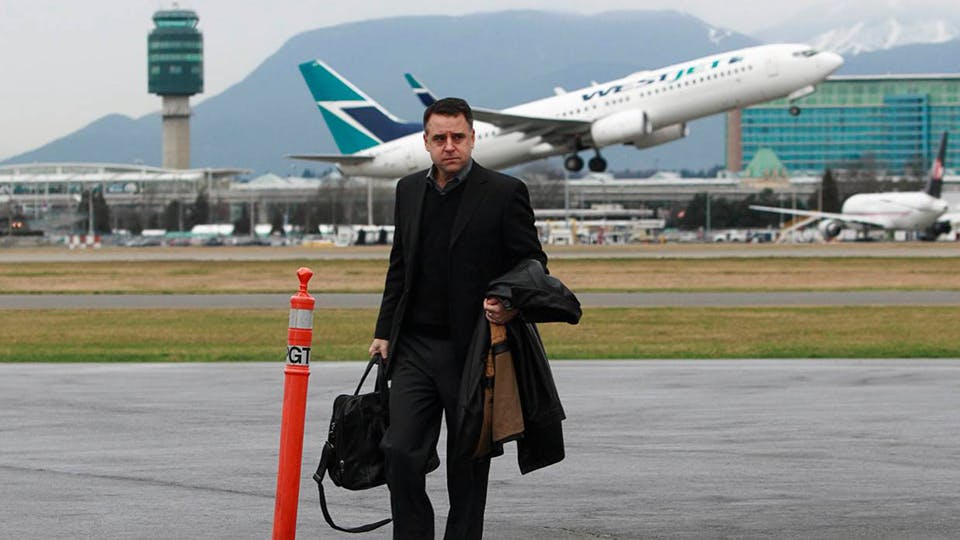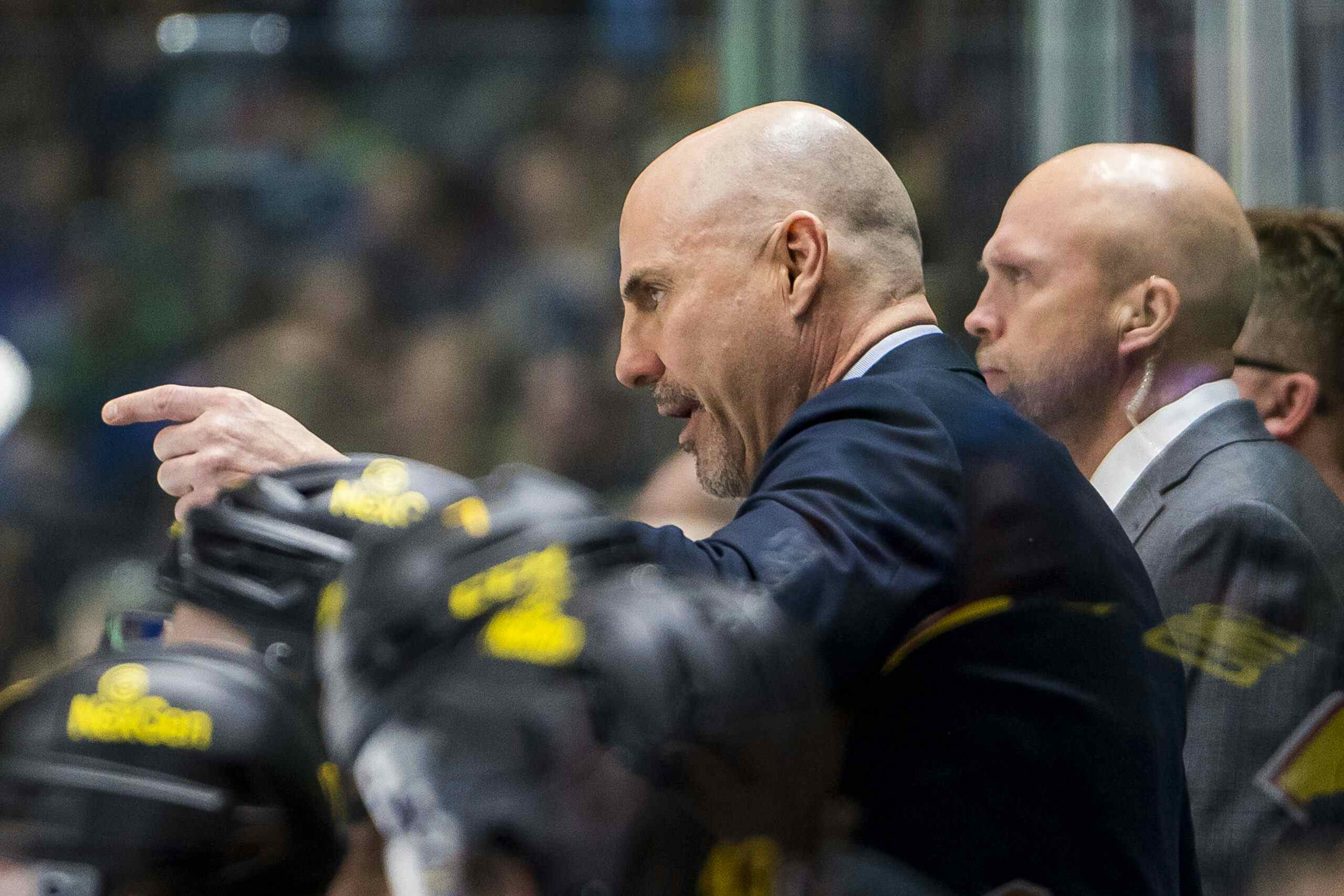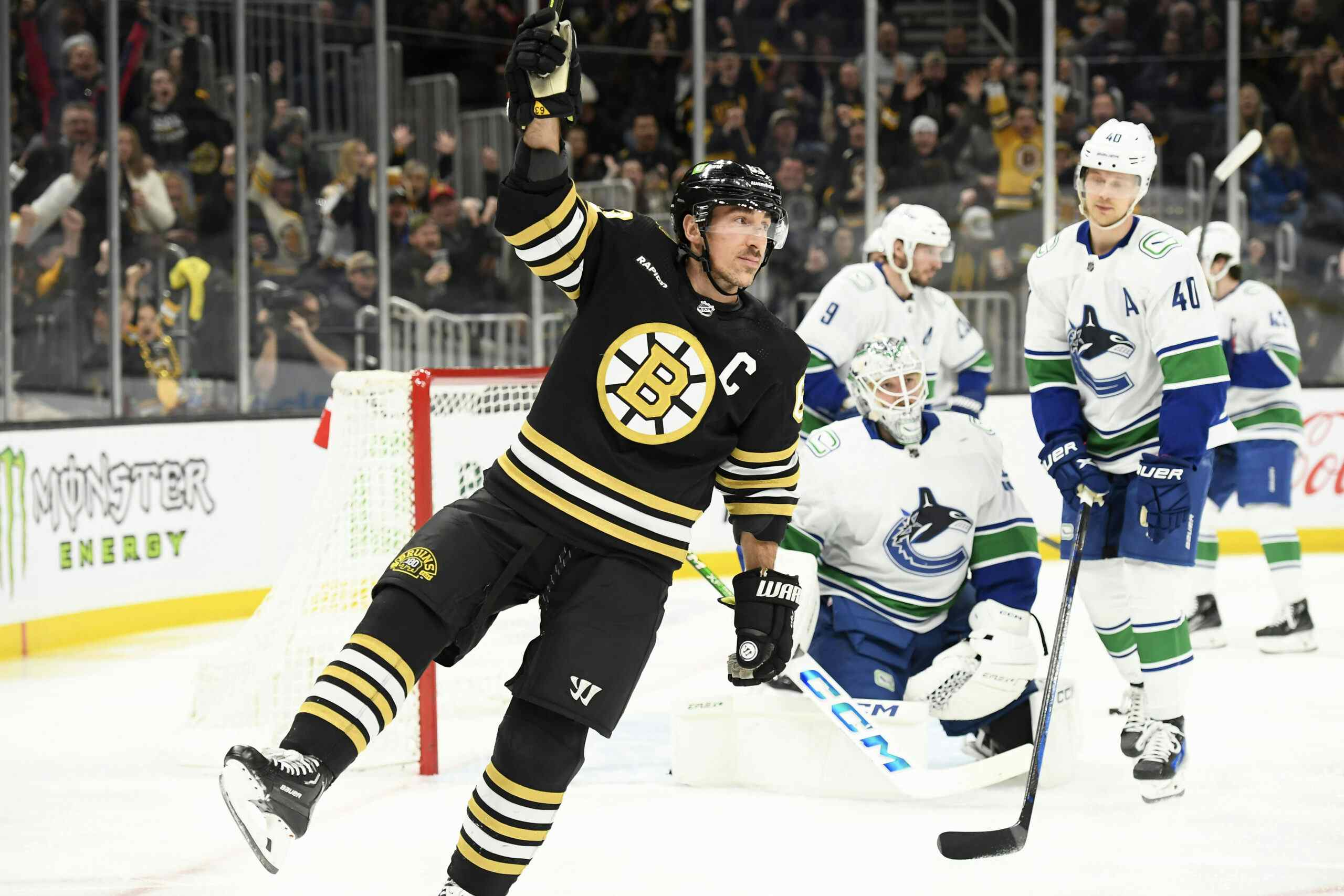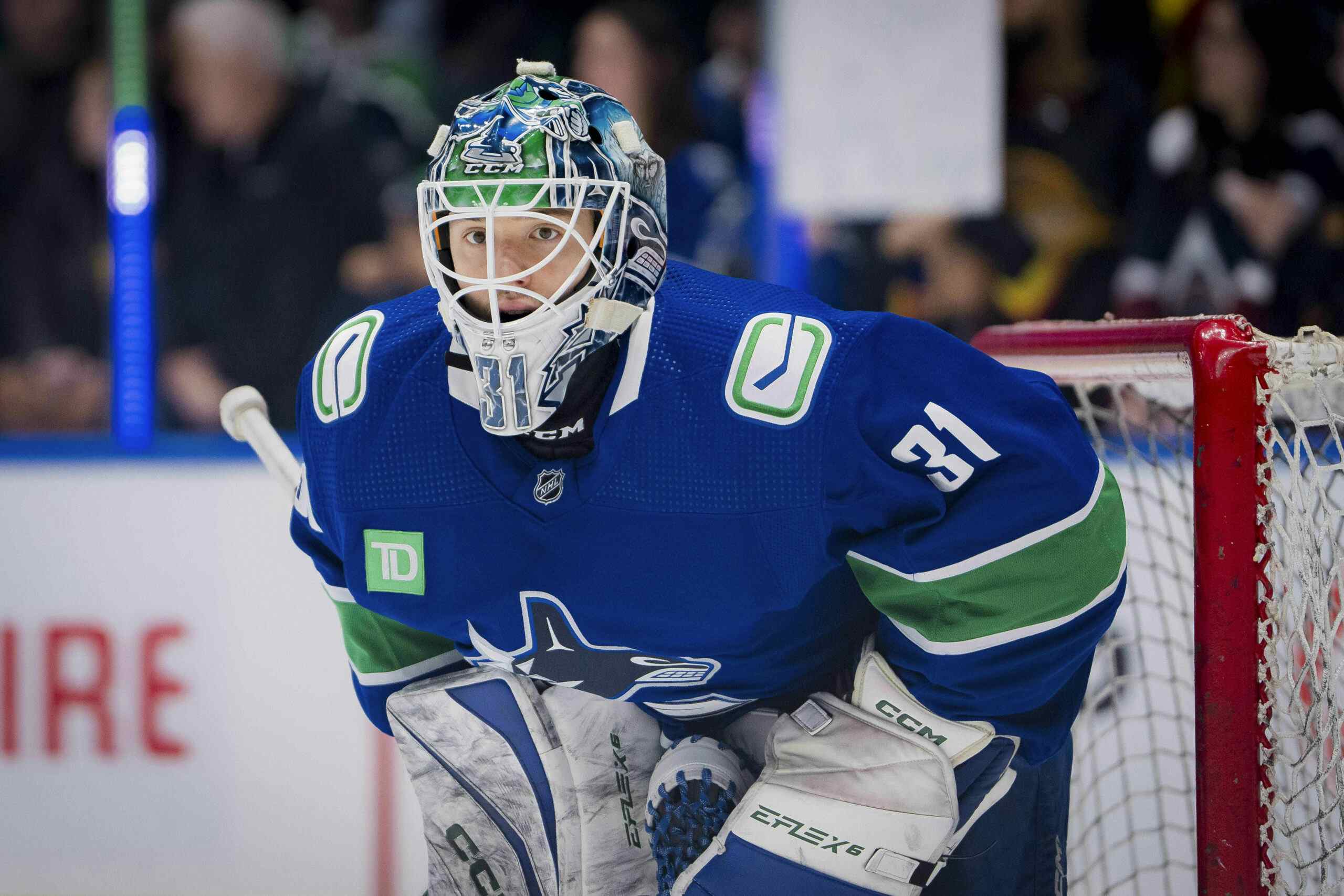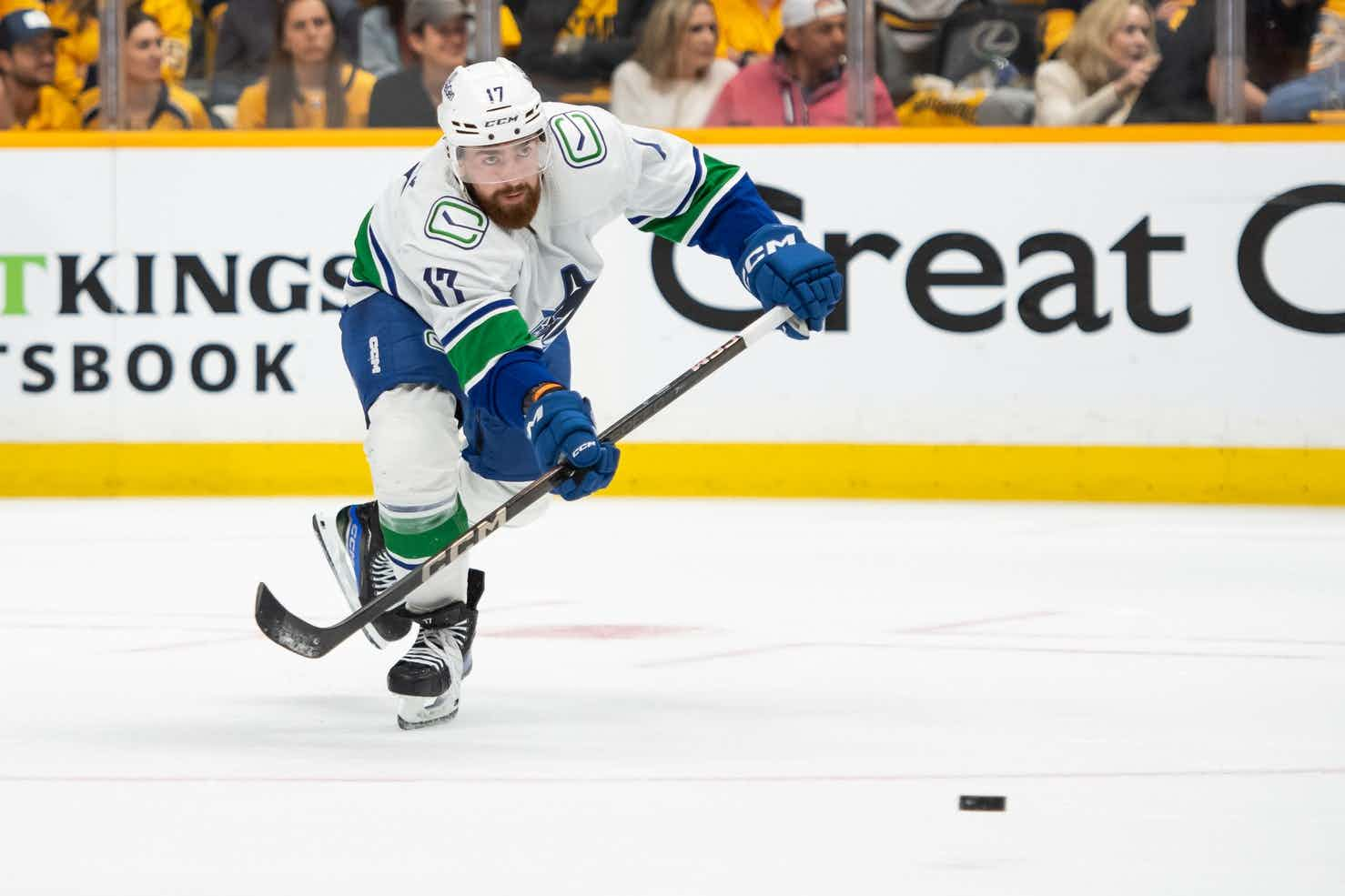Laurence Gilman Would Sign the Luongo Contract Again: “Ten Times Over”
On Thursday afternoon, Laurence Gilman joined Matt Sekeres and Blake Price for an interview in which the new collective bargaining agreement and the "cap-benefit recapture clause" on back diving contracts (or "the Luongo rule") were discussed at length.
Laurence Gilman gave his hosts a couple of particularly interesting answers. For example, he described the "cap-benefit recapture" as a "contingent liability" and reiterated his belief that Luongo could indeed play out the full term on his contract. The Canucks’ Assistant General Manager and in-house capologist also declined to express any petulance over seeing his club "punished" by the new collective bargaining agreement for a deal that was fully legal under the terms of the previous CBA. He called his personal feelings on the matter "immaterial" and vowed to concentrate instead on helping the club navigate the new agreement to the best of his considerable abilities.
The most interesting insight we gleaned from Gilman however, came from his response to a question asked by Matt Sekeres. The question? Does Laurence Gilman, "knowing what [he knows] now," "regret" signing Luongo to a 12 year deal worth in excess of sixty million? Gilman’s answer was an unequivocal, passionate "no." Read past the jump for more.
Here’s the full answer Gilman provided, to whether or not he "regretted" signing the Luongo contract:
"Not one iota. For a couple of reasons. Number one, Roberto is an exceptional athlete and a top goaltender in this game, he’s one of the top-five goaltenders in the NHL notwithstanding what sometimes get said and written about him in this city. The fact of the matter is we did… well, and secondly, knowing Roberto the way that we know him, we fully contemplated that Roberto could play to the end of this contract. At no time did we ever discuss, contemplate or imply that he wouldn’t play through the expiration of his contract. So we went into this with our eyes open.As it stands now, through the first two seasons of this deal, we have been a cap-team, we have worked the system to the best of our ability, we have been in an LTI situation where we’ve been over the cap and we have – for what it’s worth – had the advantage of the structure of the deal. We got to the Stanley Cup Final two seasons ago with this deal, it enabled us to go out and make trades at the end, particularly to get players like Chris Higgins and Max Lapierre who played significant roles for us in that cup run. And, you know, but for a couple of circumstances that could’ve occurred, that did occur, in that Cup Final, we would’ve won the Stanley Cup! And I’d tell you it would’ve been worth it all day long. Ten times over, I would do it again."
Fascinating.
Gilman is absolutely right when he describes Luongo as "one of the top-five goaltenders in the NHL" (I’d say top-two, actually). But generally speaking, gambling on a goaltender for twelve seasons is a sucker bet because – even if that goaltender is a super-elite performer of Luongo’s caliber – save percentage is so variable that a 12 year gamble on a goaltender just doesn’t make much sense.
Gilman’s more compelling argument though, comes when he points out that the Canucks have been able to "benefit" enormously from the structure of Luongo’s contract over the past two seasons. In those two seasons, Luongo has been paid over sixteen million while taking up only 10.666 million in cap-space during the club’s primary "window" to contend for a championship.
Sure, the risk Luongo’s contract represents has arguably hamstrung the Canucks over the past summer in terms of finding a trade-partner willing to part with full-value in exchange for Luongo’s services and contract. The timing of Luongo’s contract and of the cap-benefit it gave the Canucks, however, actually makes a lot of sense when you think about it.
Gilman uses the example of the 2010-11 trade-deadline (wisely avoiding a statement like, "Luongo’s contract allowed us to acquire Samme Pahlsson!), where the Canucks brought in Chris Higgins and Maxim Lapierre for peanuts and managed to fit a loaded roster under the salary cap by the skin of their teeth. It’s worth remember that, at the time, Capgeek listed the Canucks at only $1000 under the cap following those acquisitions – it was an impressive showing.
So if Luongo’s cap-hit had more closely resembled his actual salary in late February of 2011 (his contract would then carry a cap-hit over 8 million), the Canucks would’ve had no insurance for when Manny Malhotra and Mikael Samuelsson went down with injuries. They’d probably would’ve been a one and done club that postseason. The point being that, for the Canucks, that extra 2.5 million in February 2011 was outrageously valuable and it very nearly put them over the top.
Needless to say the team didn’t raise Stanley’s mug at the end of that season (in case you’d forgot), but even making it to Game 7 of the finals is an invaluable proposition for a franchise. If that shot which, was enabled by Luongo’s cap-friendly contract, ends up costing the franchise a six million dollar cap-penalty six or seven years down the road, well who really cares? I think we can confidently assert that that’s a trade-off the Canucks front office takes every time without so much as batting an eyelash.
Gilman’s comments on Thursday don’t do much to change my overall opinion on Luongo’s contract, ultimately. But his thinking on this is exceedingly interesting, and in my view, tacks closer to compelling than to the realm of base rationalization.
Recent articles from Thomas Drance

